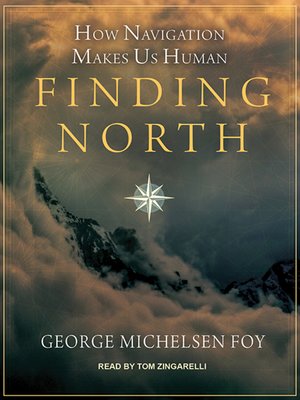
Sign up to save your library
With an OverDrive account, you can save your favorite libraries for at-a-glance information about availability. Find out more about OverDrive accounts.
Find this title in Libby, the library reading app by OverDrive.



Search for a digital library with this title
Title found at these libraries:
| Library Name | Distance |
|---|---|
| Loading... |
In 1844, George Michelsen Foy's great-great grandfather, captain of a Norwegian cargo ship, perished at sea after getting lost in a snowstorm. Foy decides to unravel the mystery surrounding Halvor Michelsen's death—and the roots of his own obsession with navigation—by re-creating his ancestor's trip using only period instruments.
Beforehand, he meets a colorful cast of characters to learn whether men really have better directional skills than women; how cells, eels, and spaceships navigate; and how tragedy results from GPS glitches. He interviews a cabby who has memorized every street in London, sails on a Haitian cargo sloop, and visits the site of a secret navigational cult in Greece.
At the heart of Foy's story is this fact: navigation and the brain's memory centers are inextricably linked. As Foy unravels the secret behind Halvor's death, he also discovers why forsaking our navigation skills in favor of GPS may lead not only to Alzheimer's and other diseases of memory, but to losing a key part of what makes us human.
Beforehand, he meets a colorful cast of characters to learn whether men really have better directional skills than women; how cells, eels, and spaceships navigate; and how tragedy results from GPS glitches. He interviews a cabby who has memorized every street in London, sails on a Haitian cargo sloop, and visits the site of a secret navigational cult in Greece.
At the heart of Foy's story is this fact: navigation and the brain's memory centers are inextricably linked. As Foy unravels the secret behind Halvor's death, he also discovers why forsaking our navigation skills in favor of GPS may lead not only to Alzheimer's and other diseases of memory, but to losing a key part of what makes us human.







